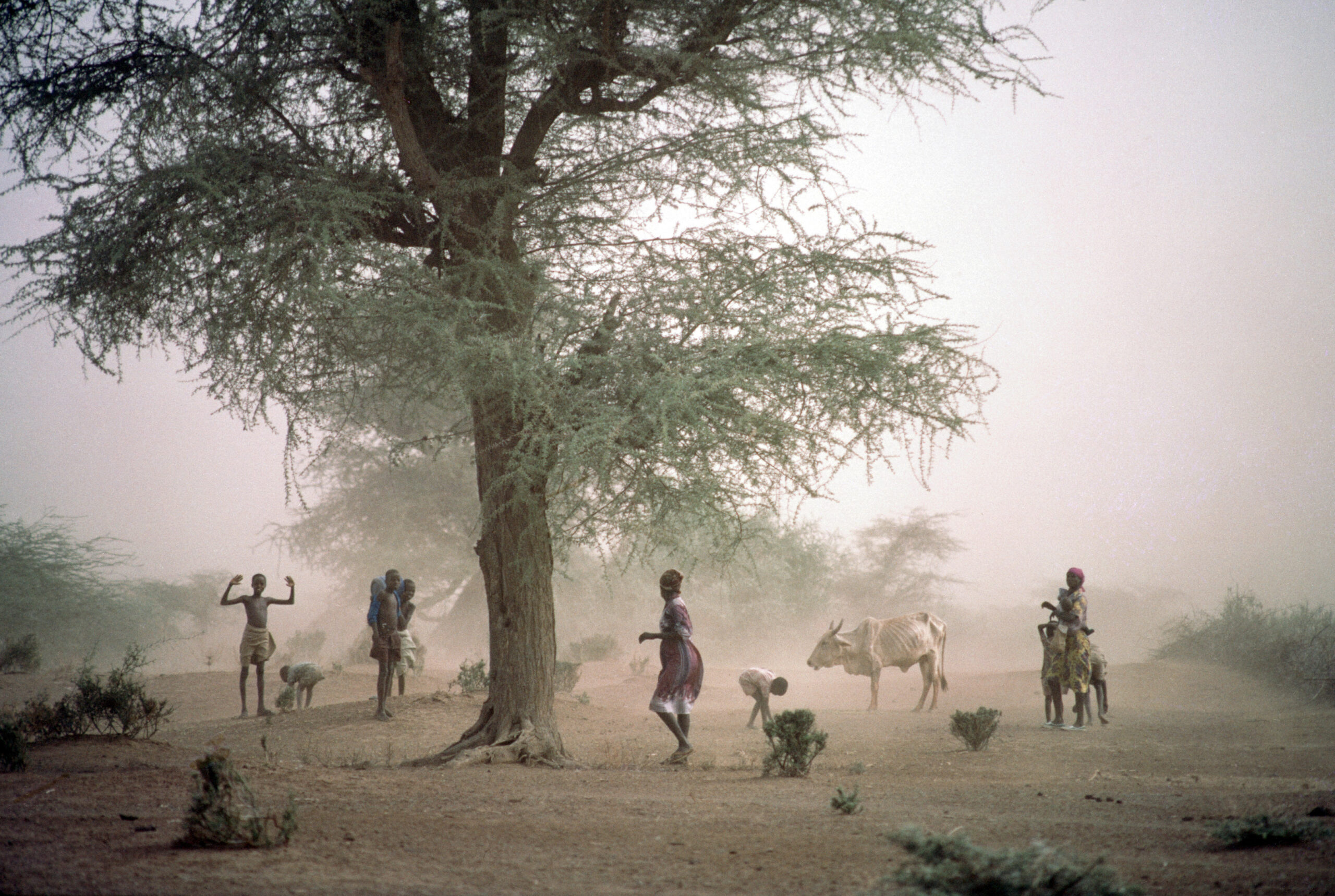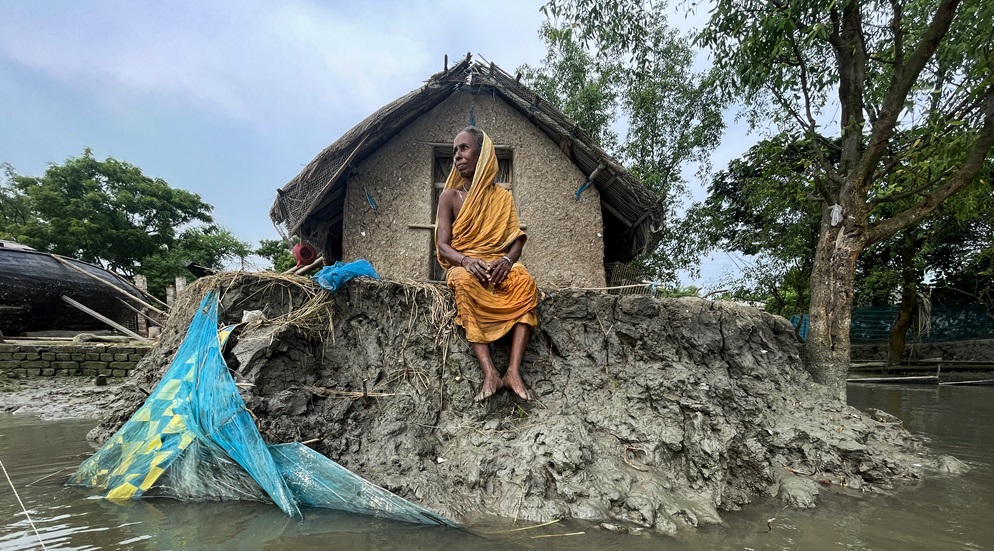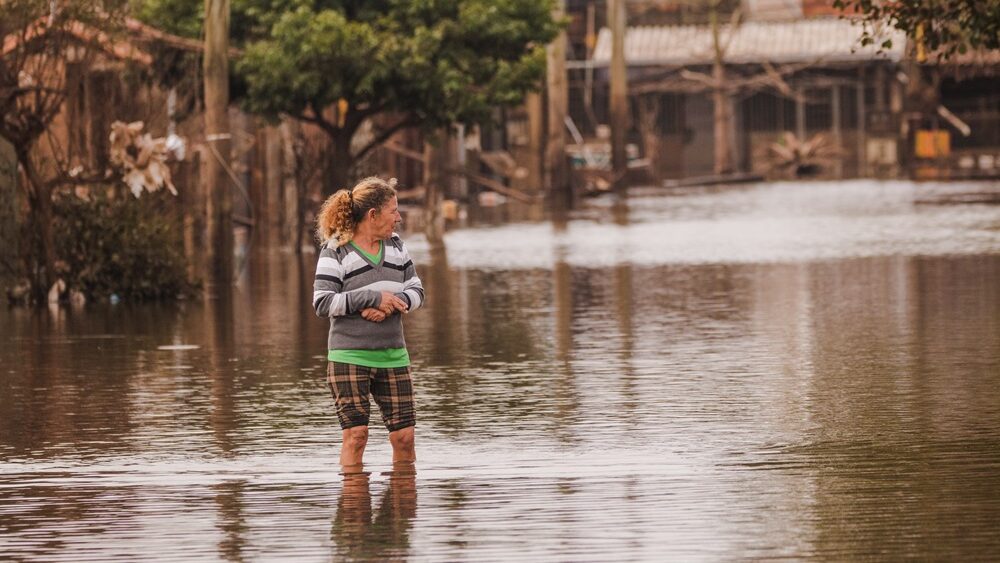Prof. Walter Kaelin, Envoy of the Chair of the Platform on Disaster Displacement
Intervention at the GCM Africa Regional Side Event
“Human Mobility in the Contexts of Disasters and Climate Change in Africa”
26 August 2021
Excellencies, ladies and gentlemen,
It is my honor and pleasure to join this panel today in my capacity as Envoy of the Chair of the Platform on Disaster Displacement (PDD). I am particularly pleased to be invited to set the scene for such a great group of panelists sharing perspectives from the local, national, sub-regional and continental levels.
The PDD is a State-led initiative following up on the Nansen Initiative, working towards better protection of persons displaced in the context of disasters and climate change. The relevance of the Nansen Initiative Protection Agenda and the Platform on Disaster Displacement (PDD) for developing and implementing coherent approaches to the challenges of human mobility in the context of disasters, environmental change and the adverse effects of climate change is explicitly recognized in Objective 2 of the GCM. With Kenya, Madagascar, Morocco, and Senegal, several members of our Steering Group are African states and we work closely with several sub-regional organizations including, in particular, IGAD.
The topic of today’s side event brings back many memories of people I have met in the course of my work in the region ranging from former pastoralists displaced by drought and lingering in neglected IDP camps and settlements in the Horn of Africa with no hope for a better future, to communities relocated from flood plains to new villages on higher grounds in Mozambique, or individuals able to cope with the impacts of disasters in Western Africa because the ECOWAS agreement on free movement allowed them to find work in neighboring countries during times of drought or flooding and support their families with remittances.
It is for people like these that we are here today to contribute to reviewing the implementation of the Global Compact for Migration (GCM) in Africa. According to what we call at PDD the “toolbox approach”, much can be done to help people like these who are affected by disasters and the adverse impacts of climate change. We can reduce hazards associated with global warming if emitters fully implement the Paris Agreement on Climate Change and substantially reduce the emission of greenhouse gases. We can help people to stay if we invest systematically in disaster risk reduction, climate change adaption and resilience building measures. We can help people at risk of displacement moving out of harm’s way by opening pathways for safe, orderly and regular migration, including across borders. And finally, we can protect those displaced by ensuring that they are not forcibly sent back to where their life is at risk. The Global Compact on Migration and its 23 objectives address all these aspects. These include instruments and tools to address the factors that compel people to move, including disasters and the adverse effects of climate change; tools and instruments that address the need for better data and knowledge to support evidence-based policies; as well as enhancing legal pathways for people compelled to move in the context of disasters and the adverse effects of climate change. While most of the GCM objectives are relevant in situations of human mobility in disaster and climate change contexts, four objectives are directly relevant to avert, minimize and address human mobility challenges in such contexts. These are: Objective 2 on minimizing the adverse drivers and structural factors that compel people to leave their country of origin, Objective 5 on enhancing the availability and flexibility of pathways for regular migration, Objective 21 on facilitating safe and dignified return and readmission, as well as sustainable reintegration, and Objective 23 on strengthening international cooperation and global partnerships for safe, orderly and regular migration.
PDD is proud to be actively contributing to the implementation of the GCM in Africa through several of our activities, including a project together with IOM and UNHCR and financed by France in the ECOWAS region, or the recent workshop series to bring together academics across the continent to develop a research agenda focusing, among others, on migration and the free movement of persons. Following up on the presentation by H.E. Madame Fathia Alwan, I would like to say a few additional words on the Joint Regional Migration Multi-Partner Trust Fund (MPTF) programme in the IGAD region. It is an excellent example of how partnerships can contribute towards developing and implementing coherent approaches to the challenges we face. The joint efforts of IOM, ILO, UNHCR, PDD and IGAD and the IGAD Climate Prediction and Application Centre (ICPAC) in this MPTF programme include the development of displacement risk models to build forecasts and to explore future displacement scenarios based on climatic and other factors. The models will estimate the likelihood of climate- related displacement in the IGAD region. They will be at the disposal of each national government to enhance access to quality data and evidence on disaster displacement risk and to prevent displacement in climate and disaster affected areas in the IGAD region. Such knowledge is indispensable for planning activities to implement GCM Objective 2. Moreover, through the development of Standard Operating Procedures on admission and stay, which will be put to test through simulation exercises, the joint efforts will also strengthen solutions and enhance pathways for people compelled to move in the context of disasters, climate change and environmental degradation, in line with Objective 5 of the GCM. In the IGAD region, they are an essential element to put Article 16 of IGADs new Protocol on the free movement of persons into practice which provides for the admission by other countries of persons affected by disaster.
Let me conclude: As we review GCM implementation in Africa, the development and implementation of such policy frameworks is key. At the same time, tracking progress in their implementation remains challenging, particularly in the absence of specific indicators aimed at measuring GCM implementation. It is important that all stakeholder work together to support ongoing efforts and address the remaining gaps in implementing disaster displacement-related commitments under the GCM in Africa. PDD remains committed to supporting these efforts, both in the IGAD region, other regions in Africa as well as through sharing experiences and effective practices from other regions of the world.
Thank you.
Useful Links
Read more about the virtual event Human Mobility in the Contexts of Disasters and Climate Change in Africa
Learn more about the project Addressing Drivers and Facilitating Safe, Orderly and Regular Migration in the Contexts of Disasters and Climate Change in the IGAD Region





